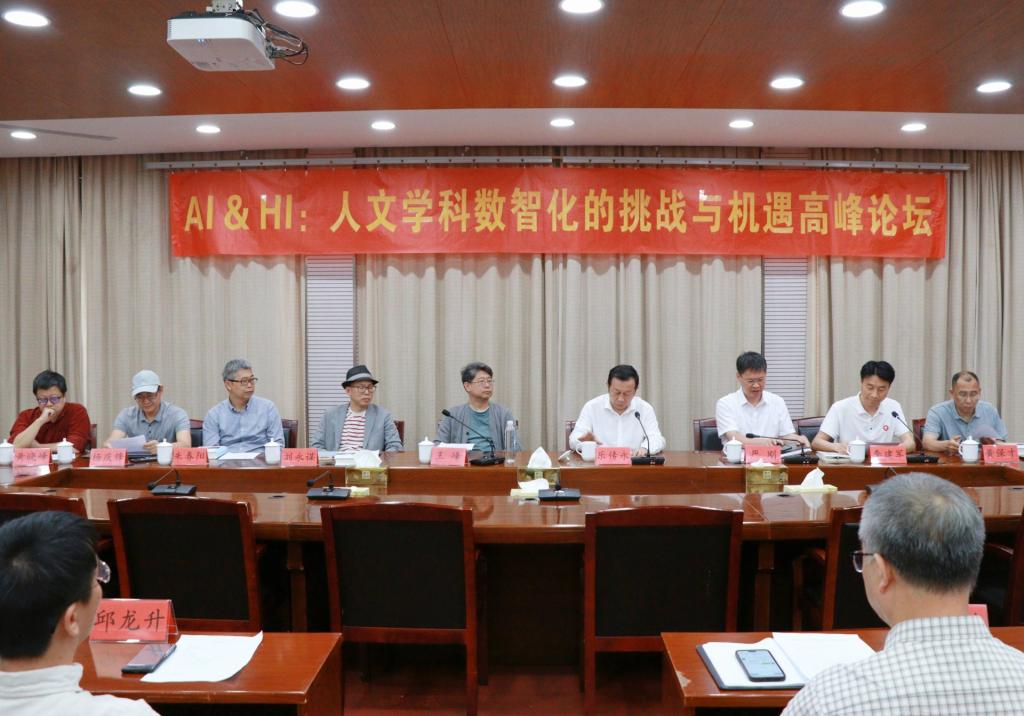The “AI & HI: Navigating the Digital Shift in Humanities” Summit Forum, organized by the School of Humanities, was hosted at TU’s Linhai Campus on May 16. Yue Chuanyong, University President and Deputy Secretary of the CPC TU Committee, along with Yan Gang, Party Secretary and Chairman of the Taizhou Federation of Social Sciences, attended and spoke at the event. Li Jianjun, Vice President and Member of the CPC TU Committee, chaired the forum.

“AI & HI: Navigating the Digital Shift in Humanities” Forum
During the opening ceremony, President Yue Chuanyong welcomed attendees and discussed both the potential benefits and the challenges AI brings to the humanities. He emphasized the importance of preserving humanistic values in this new era. Chairman Yan Gang highlighted that while digitalization offers growth opportunities for the humanities, it also presents significant hurdles. He expressed hope that humanities disciplines would make greater contributions to social progress.
Luo Zhengming, Dean of the School of Humanities, moderated the keynote presentations. Professor Hu Xiaoming (East China Normal University) spoke on The Long-Term Coexistence of Humans and AI: Response from Humanities, addressing current challenges in humanities education (“three inadequacies”) and stressing that AI should remain a tool serving human needs. Editor-in-Chief Huang Baocai (Taizhou News Media Center) presented a case study on How AI is Driving Systemic Change in Mainstream Media, advocating for AI’s role in transforming traditional media. Professor Zhu Chunyang (Fudan University) described news media as a vital hub for social communication and power dynamics, requiring strong engagement and responsiveness in his Media’s Evolving Role in the Digital Society. Professor Liu Yongmou (Renmin University of China) argued that AI’s disruptive impact demands fundamental adaptation within humanities education in The AI Revolution and Humanity’s Future. Professor Wang Feng (East China Normal University) called for integrating AI into humanities teaching and fostering interdisciplinary collaboration in The Future of AI-Assisted Writing. Professor Yang Qingfeng (Fudan University), exploring Intelligent Humanities and the New Scholar, analyzed the link between AI systems (“agents”) and the humanities, proposing ways to build “intelligent humanities” and expressing optimism about blending technology with humanistic studies.
The Paper editor Huang Xiaofeng facilitated a panel discussion. Faculty members from the School of Humanities (including Lou Xinxing, Qu Yanfei, Qiu Longsheng, Zhang Chengzhong, Zhu Lei, Hao Jinguang, and Li Jianbing) examined the impact of digitalization on specific fields like history, linguistics, and philosophy. They identified key challenges facing these disciplines and discussed practical strategies for navigating the digital transformation, engaging in thorough discussion with participants.